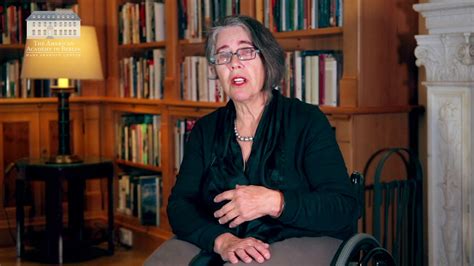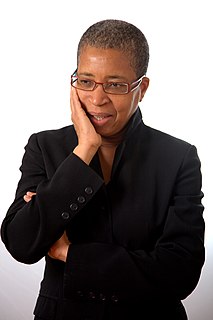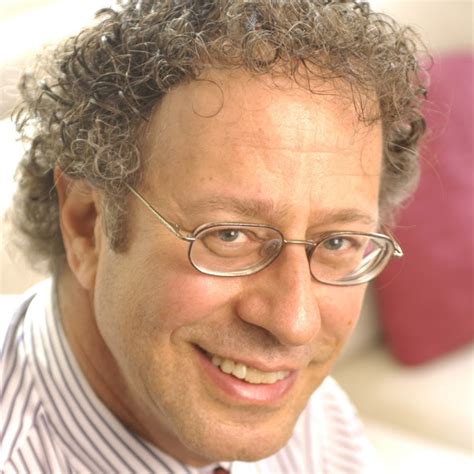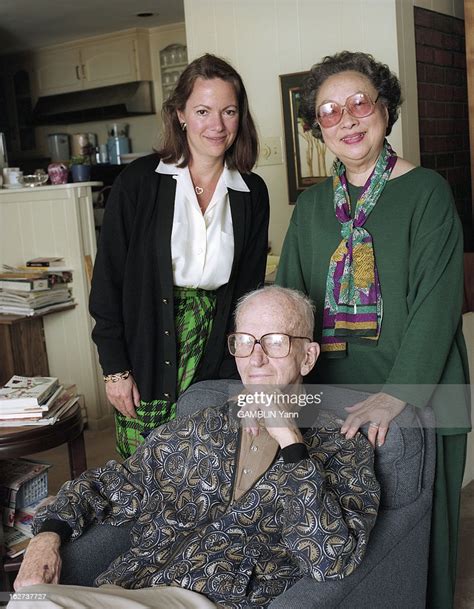Top 145 Pacing Quotes & Sayings - Page 3
Explore popular Pacing quotes.
Last updated on April 14, 2025.
The earliest influence on me was the movies of the thirties when I was growing up. Those were stories. If you look at them now, you see the development of character and the twists of plot; but essentially they told stories. My mother didn't go to the movies because of a religious promise she made early in her life, and I used to go to movies and come home and tell her the plots of those old Warner Brothers/James Cagney movies, the old romantic love stories. Through these movies that had real characters, I absorbed drama, sense of pacing, and plot.
Ever argue with a female and, in the middle of the argument, you no longer feel safe because of her actions? She may start pacing back and forth real fast, breathing out her nose. You know what my girl do? When she get mad, she start talking in the third person. That's scary as hell because that's her way of telling me that from this point on, she is not responsible for none of her actions.
Not only is [a half marathon] a good test for the marathon, it is also good for those who feel they were just getting going in a 10K and are physically and mentally primed to go further. A half marathon is a good test of your endurance, without the physical punishment of going the full 26.2 miles. More so even than the 10K, it will teach you about patience, pacing, and how to negotiate a wider range of physical and emotional cycles.
My stepfather used to be a clown in The Shrine Circus. He took me backstage when I was 23. I saw three elephants chained to the cement floor in the warehouse of the Michigan State Fairgrounds. Sadness, hopelessness and fear were emanating from their eyes, from their bodies. They were swaying neurotically from side to side. A monkey was screaming in his cage, grabbing the bars of his prison. Two tigers were pacing feverishly in their tiny cages. Cruelty was staring me in the face. I knew something was wrong. If you pay attention to energy, you can tell when a fellow being is in peril.
Without even knowing it, we are assaulted by a high note of urgency all the time. We end up pacing ourselves to the city rhythm whether or not it's our own. In time we even grow hard of hearing to the rest of the world. Like a violinist stuck next to the timpani, we may lose the ability to hear our own instrument.
Writing simply means no dependent clauses, no dangling things, no flashbacks, and keeping the subject near the predicate. We throw in as many fresh words we can get away with. Simple, short sentences don't always work. You have to do tricks with pacing, alternate long sentences with short, to keep it vital and alive.... Virtually every page is a cliffhanger--you've got to force them to turn it."~
When you are waiting for a train, don't keep perpetually looking to see if it is coming. The time of its arrival is the business of the conductor, not yours. It will not come any sooner for all your nervous glances and your impatient pacing, and you will save strength if you will keep quiet. After we discover that the people who sit still on a long railroad journey reach that journey's end at precisely the same time as those who "fuss" continually, we have a valuable piece of information which we should not fail to put to practical use.
The rest, with very little exaggeration, was books. Meant-to-be-picked-up books. Permanently-left-behind books. Uncertain-what-to-do-with books. But books, books. Tall cases lined three walls of the room, filled to and beyond capacity. The overflow had been piled in stacks on the floor. There was little space left for walking, and none whatever for pacing.
There are so many people pulling at me at one time - some want the business, some want my love, some just want my support, just to be there or to acknowledge them the same way I used to. To be able to figure that out is an ongoing process, because there's always another show, another album, another moment that I don't want to miss. But I'm pacing myself. I hope the powers that be keep me on a straight course.
With the rise of industrialism, words like 'normal' and 'defective,' words that had once only been used to refer to things, began to be used to refer to people. ... In the industrial age, a new degree of uniformity was expected of people. The rhythms and pacing of life could no longer be organic. People became expected to function like things.
Of course, there are hundreds of novels and authors that have influenced me. But to choose three, they are: Stephen King/The Stand (and really most of his books); Anne Rice/The Witching Hour; and Pat Conroy/The Prince of Tides. These authors write my favorite kind of book - epic feel, gorgeous prose, unique characters, and a pace that keeps you turning the pages. From them, I learned a lot about characterization, pacing, prose, voice, and originality.
Once we get out on the road, my tour manager who is also my guitar player does a great job of taking weight off of my shoulders where I can just focus on playing the shows.About two hours before every show, the pacing starts and the anticipation builds. I prepare for it just like I would when I used ride bulls, slap yourself in the face, wake yourself up and get your heart going.
Barack Obama knows that to create an economy built to last, we need to focus on middle-class families. Families who stay up on Sunday nights pacing the floor, like my dad did, while their children, tucked in bed, dream big dreams. Families who aren't sure what Monday morning will bring, but who believe our nation's best days are still ahead.
The rewriting is always crucial to what I do; whenever I do a scene, I always tell myself that this isn't final and that I can do it again, better. The pacing is probably from experience. I've always liked gradual disclosure. I keep thinking of my rubber-band theory. You have a rubber band that you keep pulling and pulling and pulling, and just at the moment of snapping you release it and start another chapter and start pulling again.
Obviously, where art has it over life is in the matter of editing. Life can be seen to suffer from a drastic lack of editing. It stops too quick, or else it goes on too long. Worse, its pacing is erratic. Some chapters are little more than a few sentences in length, while others stretch into volumes. Life, for all its raw talent, has little sense of structure. It creates amazing textures, but it can't be counted on for snappy beginnings or good endings either. Indeed, in many cases no ending is provided at all.
One observer commenting on security analysts over forty stated: "They know too many things that are no longer true." As long as I am "on stage", publishing a regular record and assuming responsibility for management of what amounts to virtually 100% of the net worth of many partners, I will never be able to put sustained effort into any non-BPL activity. If I am going to participate publicly. I can't help being competitive. I know I don't want to be totally occupied with out-pacing an investment rabbit all my life. The only way to slow down is to stop.
A book is maybe about 350 pages, and the prose allows for readers to get a glimpse into the internal lives of the characters. A screenplay is 120 pages, and it's all dialogue and action. The pacing of films is different, the structure is often different, and the internal lives of the characters must come across through the acting. Movies are just a different experience than reading - so it just depends on what an individual prefers.
As for the differences between audio and the printed page, the sonic aspects of poetry are important to me. I read my poems aloud to myself as I'm composing them. And I enjoy reading to an audience. I think people get tone more easily when they hear a writer read her work. Some people have told me they hear more humor in my poems at a live reading than when they see them on the page. I think that may be a matter of pacing. On the other hand, I've listened to a lot of poetry readings and I know how much you can miss. If you stop to really register one line, you miss the next three or so.
Judged by the stark, sure-footed portrait in Hard Time, Brian Azzarello and Richard Corben clearly have John Constantine down, cold and to the life. Azzarellos grasp of pacing, character and situation resonates through every scene with a black crystal clarity thats short of masterful, while Corben contributes what is, perhaps, one of the most darkly expressive pieces in a long, already-legendary career.
The body's habituation to walking as normal stems from the good olddays. It was the bourgeois form of locomotion: physicaldemythologization, free of the spell of hieratic pacing, rooflesswandering, breathless flight. Human dignity insisted on the right towalk, a rhythm not extorted from the body by command or terror. Thewalk, the stroll, were private ways of passing time, the heritage ofthe feudal promenade in the nineteenth century.
I read a lot of detective stories because they always deliver. They give you a beginning, a middle, and an end - a resolution. The modern novels I read don't always deliver because I'm looking essentially for a story. As in Shakespeare, "The play's the thing." In particular I read detective stories for pacing, plot and suspense.
Even more than the depression, it was my anxiety and agitation that became the defining symptoms of my illness. Like epileptic seizures, a series of frenzied anxiety attacks would descend upon me without warning. My body was possessed by a chaotic, demonic force which led to my shaking, pacing and violently hitting myself across the chest or in the head. This self-flagellation seemed to provide a physical outlet for my invisible torment, as if I were letting steam out of a pressure cooker.
The term "godawful" should be used sparingly in connection with motion pictures. With Angels & Demons, however, it seems oddly appropriate. Not only does this prequel-turned-sequel to The Da Vinci Code make its predecessor seem like a masterwork of pacing and plotting, but it may represent a nadir for director Ron Howard and is probably the worst instance of acting from star Tom Hanks since back in the days when he was struggling out from under the shadow of Bosom Buddies.
With impeccable timing and a fine instinct for the telling detail, Francesca Abbate evokes the plenitudes and the deprivations of human habitation, the nurturing richness of landscape, and the soul-wound wrought by casual defacement. Abbate has a superb capacity for distillation and a mastery of poetic line, and her diction is remarkably flexible, accommodating both the demotic and the lyrical. Her poems are as consistent in quality as they are varied in pacing, surface, and tone. A fine first book.






















